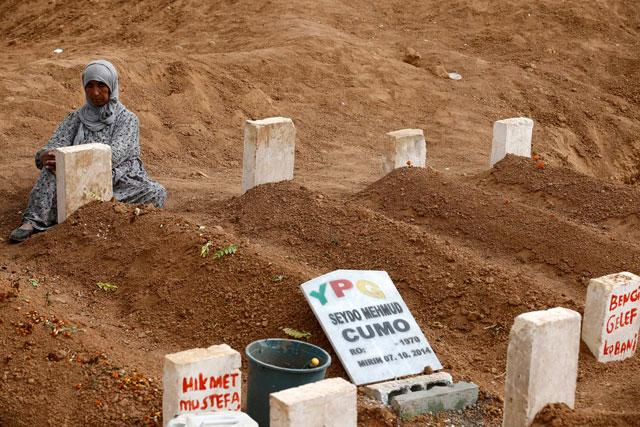You are here
US Senate ready to support Obama on Syrian rebel aid
By AP - Sep 18,2014 - Last updated at Sep 18,2014
WASHINGTON — The US Senate steamed towards final congressional approval Thursday of President Barack Obama's request to train Syrian rebels for a war against Islamic State (IS) militants in the Middle East.
The legislation also provides funding for the government after the end of the budget year on September 30, eliminating any threat of a shutdown in the run-up to November elections for control of the Senate and a new House.
For a second straight day, the administration dispatched top-ranking officials to reassure lawmakers — and the public — that no US ground combat operation was in the offing.
Defence Secretary Chuck Hagel told one House committee that Obama "is not going to order American combat ground forces into that area".
Appearing before a different panel, Secretary of State John Kerry said the administration understands the danger of a "slippery slope". The term was widely used a half-century ago as the United States slid ever deeper into a Vietnam war that eventually left more than 50,000 US troops dead.
Obama's general plan is to have US troops train Syrian rebels at camps in Saudi Arabia, a process that the chairman of the Joint Chiefs of Staff, Gen. Martin Dempsey, said could take a year.
Additionally, the president already has said he will use existing authority to have the Pentagon deploy air strikes against Islamic fighters in Syria as well as in Iraq. Hagel said the president received a detailed plan for operations in Syria during a visit Wednesday to US Central Command in Tampa, Florida, and was reviewing it.
In Washington, leaders in both political parties supported the Senate legislation.
Asked about approving Obama's plan in the wake of the war in Iraq, Senate Majority Leader Harry Reid said: "Iraq was a mistake. I was misled and I voted wrong. But this is not Iraq, this is a totally different thing."
Senate Republican Leader Mitch McConnell also favoured the legislation.
But his fellow Kentuckian, Senator Rand Paul, opposed not only the president's policy but also the refusal of Senate leaders to permit a stand-alone vote on it.
He warned against creating a vacuum that radical Jihadists may quickly fill. "Intervention that destabilises the Middle East is a mistake. And yet, here we are again, wading into a civil war," he said.
Paul is a likely candidate for the White House in 2016, and his position set out a clear foreign policy maker in advance of Republican primaries still more than a year away.
This week's vote seemed likely to become an issue in contested Senate races before then.
Like some Republicans, Senate liberals split on the measure.
Senator Bernard Sanders, an independent, readily conceded the threat posed by forces seeking creation of an IS. But he said countries in the Middle East most threatened had not yet joined the international coalition that Obama is trying to assemble.
But Senator Barbara Boxer (D-California), said Obama's proposal marked a moderate, middle course between doing nothing in response to a terrorist threat and refighting the Iraq war.
"Every civilised person has to stand up against this," she said.
While Democrats expressed fears that the legislation could lead the nation back into a war, some Republicans were sceptical that Obama's strategy was strong enough to prevail.
As a result, the legislation provided only a narrow grant of authority that will expire on December 11. It specifically stops short of approving the deployment of US forces "into hostilities or into situations where hostilities are clearly indicated by the circumstances”.
The expiration date means Congress will have to return to the issue in a postelection session scheduled to begin in mid-November.
Related Articles
US Defence Secretary Chuck Hagel announced his resignation Monday as President Barack Obama's White House faces mounting criticism over perceived fumbling in its global security strategy.
The United States and coalition forces are making progress in the fight against Islamic State (IS) militants in Iraq and Syria, but the American people must prepare for a long and difficult struggle, Defence Secretary Chuck Hagel told Congress on Thursday.
The Obama administration is boxed in by its promise to limit US military engagement against Islamic State (IS) group extremists, making it tough to agree to Turkey's condition for joining the fight in neighbouring Syria.



















